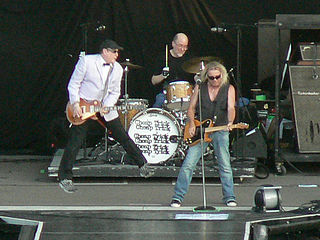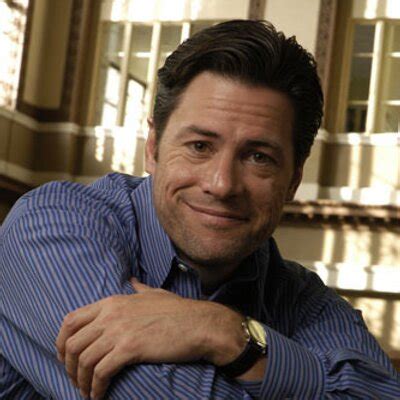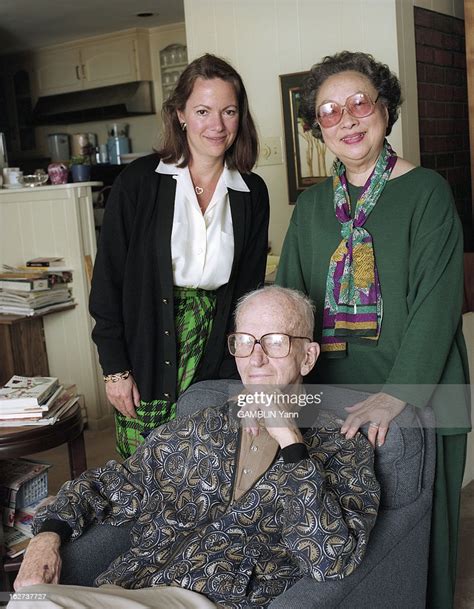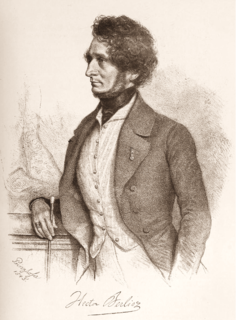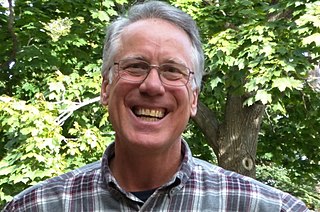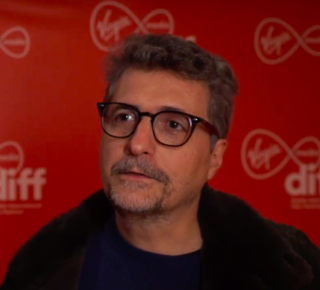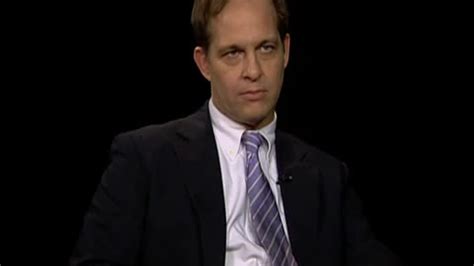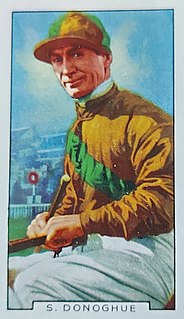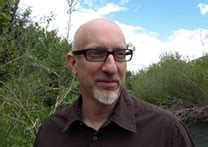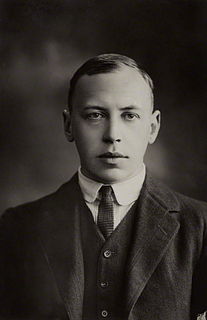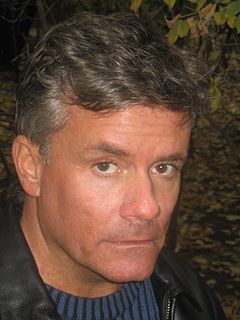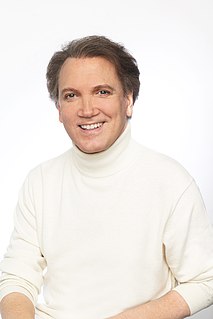Top 599 Epic Quotes & Sayings - Page 10
Explore popular Epic quotes.
Last updated on April 17, 2025.
Humanity is sitting on a time bomb. If the vast majority of the world's scientists are right, we have just ten years to avert a major catastrophe that could send our entire planet's climate system into a tail-spin of epic destruction involving extreme weather, floods, droughts, epidemics and killer heat waves beyond anything we have ever experienced - a catastrophe of our own making.
When NASA makes discoveries they are profound and they make headlines, everyone takes notice. It drives dialogue and, today, it would drive the blogosphere. It would drive the projects the kids do in school. So you wouldn't even need programs to try and stimulate curiosity. You wouldn't need programs to try to convince people that science literacy is good. Because they're going to want to participate on this epic adventure that we call space exploration.
In April of 1976, Epic Records was flying out to sign us when I tripped over a light case after a gig and broke my arm. We called the next morning and said, 'Don't go to the airport - Bun E. broke his arm.' They thought Mercury or someone was trying to sign us, so they offered us, like, $25,000 more on top of the deal.
I've discovered that like every writer, I'm helpless MYSELF - and that means I find myself unconsciously or semi-consciously repeating motifs and themes and even using certain words or images recurrently in my work, no matter how much I think I'm starting fresh. But I've always admired artists who made a specific sport of trying to visit different kinds of genres or mediums or modes - not just 'western' or 'detective', but comedy/tragedy, epic and miniature, traditional/experimental.
I write books for teenagers because I vividly remember what it felt like to be a teen facing everyday and epic dangers. I don't write to protect them. It's far too late for that. I write to give them weapons-in the form of words and ideas-that will help them fight their monsters. I write in blood because I remember what it felt like to bleed.
I began dividing life in absolutes... Things and people were either perfectly bad, or perfectly good, and when life didn't obey this black-and-white rule, when things or people were complex or contradictory, I pretended otherwise. I turned every defeat into a disaster, every success into an epic triumph, and separated all people into heroes or villains. Unable to bear ambiguity, I built a barricade of delusions against it.
Claudia Rankine's Citizen comes at you like doom. It's the best note in the wrong song that is America. Its various realities-'mistaken' identity, social racism, the whole fabric of urban and suburban life-are almost too much to bear, but you bear them, because it's the truth. Citizen is Rankine's Spoon River Anthology, an epic as large and frightening and beautiful as the country and various emotional states that produced it.
In a way, that's also a recognition that Dante needs Virgil and that the Inferno needs the Aeneid and that the epic needs a model and that for Dante to write this great poem he needs someone to come before him and he turns to Virgil's text, especially book six where Aeneas goes down into the underworld. And for me, that's a model of the poet's relationship to previous poetry, to another poetry as calling out for guidance.
Different influences at different times in my career, and some have stayed with me more, some less. Chester Himes. Ralph Dennis, who wrote a series called Hardman which is a big influence on the Hap and Leonard novels. Harlan Ellison, Philip Jose Farmer, Gerald Kersh, Fredrick Brown, Robert Bloch, and I'm just getting started. I read constantly. As for the epic Western, that's Paradise Sky.
Upon the publication of Goethe's epic drama, the Faustian legend had reached an almost unapproachable zenith. Although many failed to appreciate, or indeed, to understand this magnum opus in its entirety, from this point onward his drama was the rule by which all other Faust adaptations were measured. Goethe had eclipsed the earlier legends and became the undisputed authority on the subject of Faust in the eyes of the new Romantic generation. To deviate from his path would be nothing short of blasphemy.
Marriage, which has been the bourne of so many narratives, is still a great beginning, as it was to Adam and Eve, who kept their honey-moon in Eden, but had their first little one among the thorns and thistles of the wilderness. It is still the beginning of the home epic - the gradual conquest or irremediable loss of that complete union which make the advancing years a climax, and age the harvest of sweet memories in common.
A Concordance of Leaves is an epic poem of the indomitable yet fragile human spirit. Philip Metres brings Palestine and Palestinians into English with rare luminosity. One feels echoes of Oppen's succinct tenderness in the depiction of the numerous characters of this work. Without other, there is no self. And that other is the stranger who must be loved. Concordance is, after all, a wedding poem-leaves and pages in search of a certain passage toward harmony.
In that six months, so much happened that death seemed, primarily, inconvenient. The trial period was extended. I seem to keep extending it. There are many things to do. There are books to write and naps to take. There are movies to see and scrambled eggs to eat. Life is essentially trivial. You either decide you will take the trite business of life and give yourself the option of doing something really cool, or you decide you will opt for the Grand Epic of eating disorders and dedicate your life to being seriously trivial.
To later Romans Ennius was the personification of the spirit of early Rome; by them he was called "The Father of Roman Poetry." We must remember how truly Greek he was in his point of view. He set the example for later Latin poetry by writing the first epic of Rome in Greek hexameter verses instead of in the old Saturnian verse. He made popular the doctrines of Euhemerus, and he was in general a champion of free thought and rationalism.
Man demands truth and fulfills this demand in moral intercourse with other men; this is the basis of all social life. One anticipates the unpleasant consequences of reciprocal lying. From this there arises the duty of truth. We permit epic poets to lie because we expect no detrimental consequences in this case. Thus the lie is permitted where it is considered something pleasant. Assuming that it does no harm, the lie is beautiful and charming.
Hollywood is no longer the top. I love going to the cinema. I've always adored the idea of being in great, epic films. But they just don't really exist anymore. It's a real shame. There's great auteurs that create small movies, but it's really hard for anyone to see them, and for them to make any sort of money, or for them even to be made in the first place.
For if there were a list of cosmic things that unite us, reader and writer, visible as it scrolled up into the distance, like the introduction to some epic science-fiction film, then shining brightly on that list would be the fact that we exist in a financial universe that is subject to massive gravitational pulls from states. States tug at us. States bend us. And, tirelessly, states seek to determine our orbits.
You start out with big dreams and I mean, big dreams artistically. You want to work with the greatest living directors, make a great movie. I wanted to make a great love story, I wanted to make a great epic and then you realize that the truth of it is that it's so hard to make a great film. It's hard to get a great role. Those big expectations change to realism pretty quickly. But what's never changed is my desire to work with great directors and to find projects that push me out of my comfort zone and keep me alive. I still don't think I've done my best work
Lawrence Hill, a cultural and spiritual descendant of West African griots, has used his vast storytelling talents to create an epic story that spans three continents. The Book of Negroes recites the pain, misery and liberation of one African woman, Aminata Diallo, who was stolen from her homeland and sold into American slavery. Through Aminata, Hill narrates the terrifying story of slavery and puts at the centre a female experience of the African Diaspora. I wept upon reading this story. The Book of Negroes is courageous, breathtaking, simply brilliant.
Short of climbing aboard a time capsule and peeling back eight and one-half decades, James Cameron's magnificent Titanic is the closest any of us will get to walking the decks of the doomed ocean liner. Meticulous in detail, yet vast in scope and intent, Titanic is the kind of epic motion picture event that has become a rarity. You don't just watch Titanic , you experience it from the launch to the sinking, then on a journey two and one-half miles below the surface, into the cold, watery grave where Cameron has shot never-before seen documentary footage specifically for this movie.
With most electronic music I hear now, the things I like will be the things that have soul. It has to have a feeling in it, where it feels warm, or feels epic. I like to play with that in my music as well, there will always be a piano chord or something underneath it to make you feel at home. I always try and make sure even with vocals and layering that you still feel like you know me, no matter whether you're into grime or hip hop.
Disappointment Can do a couple things. It can drop you into a giant sucking sinkhole of depression, a place you have to fight to climb out of. Or it can trigger an epic mania to overcome the odds and transform failure into success. Say you swing as high as the chains will take you because you seek the thrill of flight, and on the up- kick, you lose your seat. Injury is likely. But if you worry about falling down, and never chance "up," the sky will remain forever out of reach.
The American People will take Socialism, but they won't take the label. I certainly proved it in the case of EPIC [End Poverty in California]. Running on the Socialist ticket I got 60,000 votes, and running on the slogan to 'End Poverty in California' I got 879,000. I think we simply have to recognize the fact that our enemies have succeeded in spreading the Big Lie. There is no use attacking it by a front attack, it is much better to out-flank them.
In my opinion, the trombone is the true head of the family of wind instruments, which I have named the 'epic' one. It possesses nobility and grandeur to the highest degree; it has all the serious and powerful tones of sublime musical poetry, from religious, calm and imposing accents to savage, orgiastic outburst. Directed by the will of the master, the trombones can chant like a choir of priests, threaten, utter gloomy sighs, a mournful lament, or a bright hymn of glory; they can break forth into awe-inspiring cries and awaken the dead or doom the living with their fearful voices.
The great wheel of fire of ancient wisdom, silence and word engendering the myth of the origin, human action engendering the epic voyage toward the other; historical violence revealing the tragic flaw of the hero who must then return to the land of origin; myth of death and renewal and silence from which new words and images will arise, keeps on turning in spite of the blindness of purely lineal thought.
She was the epic crush of my childhood. She was the tragedy that made me look inside myself and see my corrupt heart. She was my sin and my salvation, come back from the grave to change me forever. Again. Back then, when she sat on my bed and told me she loved me, I wanted her as much as I have ever wanted anything.
I don't think all films should necessarily look like they do on digital video. I think it cheats the audience, at some point. If you try to make an epic and you shoot it digitally, that doesn't make much sense. I think there's a certain kind of film that could be a "digital film." But it shouldn't be interchangeable with other films. It should be something more than just a capture medium. It should be a different form altogether, something new.
The Great Story of our immense journey contains crucial lessons for guiding humanity safely through the dangers and confusions evident today. This grand epic will propel us forward in a spirit of expectant curiosity. We will place our trust not only in the Whole but also in our own species' capacity to serve as the vessel through which the evolutionary impulse is most active at this time.
I'm fascinated by the period that goes from the Industrial Revolution to right after World War II. There's something about that period that's epic and tragic. There's a point after the industrial period where it seems like humanity's finally going to make it right. There were advances in medicine and technology and education. People are going to be able to live longer lives; literacy is starting to spread. It seemed like finally, after centuries of toiling and misery, that humanity was going to get to a better stage. And then what happens is precisely the contrary. Humanity betrays itself.
Imagine a poem written with such enormous three-dimensional words that we had to invent a smaller word to reference each of the big ones; that we had to rewrite the whole thing in shorthand, smashing it into two dimensions, just to talk about it. Or don’t imagine it. Look outside. Human language is our attempt at navigating God’s language; it is us running between the lines of His epic, climbing on the vowels and building houses out of the consonants.
The world has progressed to the point where it's most powerful force is public opinion. And I believe that in this world it is not the great book or epic play, as once was the case, that will shape that opinion, but those who understand mass media and the techniques of mass persuasion...We must not just believe in what we sell. We must sell what we believe in. And we must pour a vast energy into those causes.
Young people today are flooded with disconnected images but lack a sympathetic instrument to analyze them as well as a historical frame of reference in which to situate them. I am reminded of an unnerving scene in Stanley Kubrick's epic film, 2001: A Space Odyssey, where an astronaut, his air hose cut by the master computer gone amok, spins helplessly off into space.
It's all about time, dimwit time, inferior time, people checking watches and other devices, other reminders. This is time draining out of our lives. Cities were built to measure time, to remove time from nature. There's an endless counting down, he said. When you strip away surfaces, when you see into it, what's left is terror. This is the thing that literature was meant to cure. The epic poem, the bedtime story.
One good thing about a good book or a good film, or maybe even a song, I'm not a musician but I love to listen to music, is the range that each piece is able to give you. Like 'Bohemian Rhapsody' by Queen, 1975, that song is so epic. It goes in so many different places, it's and opera and it is heavy metal, and it's so crazy as it goes every which way. I kind of like films like that.
To come out here and play on Woodstock grounds, first year ever headlining on the main stage there's nothing more iconic. [Mysteryland] is one of those festivals that holds down the legacy of dance music it's been around for so many years. It's been part of what we do for so long. It kinda makes sense to bring the tradition over here to America. The festival grounds of Woodstock, that's pretty epic.
Of course, there are hundreds of novels and authors that have influenced me. But to choose three, they are: Stephen King/The Stand (and really most of his books); Anne Rice/The Witching Hour; and Pat Conroy/The Prince of Tides. These authors write my favorite kind of book - epic feel, gorgeous prose, unique characters, and a pace that keeps you turning the pages. From them, I learned a lot about characterization, pacing, prose, voice, and originality.
I'd say probably the most epic experience was before the Victoria's Secret show - I think it was before the casting - and I saw Naomi Campbell at a party. I was saying that I was nervous about my walk and she said "Come to my hotel tomorrow and we're going to practice." So I went in New York and we practiced in the hallway of her hotel with all of the hotel staff watching. She just said "Don't even flinch. Keep going!" It was hilarious, but I think that was kind of a confidence booster.
I visited Paterson many years ago - 20 some years ago as a kind of day trip because of William Carlos Williams, because of Allen Ginsberg having lived there. And I went to the Great Falls and sat really in the exact same spot as Adam Driver does as Paterson. And I walked around the factory buildings, and I was rereading - I was reading at the time the epic length poem "Paterson" by Williams.
Many are the noble words in which poets speak concerning the actions of men; but like yourself when speaking about Homer, they do not speak of them by any rules of art: they are simply inspired to utter that to which the Muse impels them, and that only; and when inspired, one of them will make dithyrambs, another hymns of praise, another choral strains, another epic or iambic verses- and he who is good at one is not good any other kind of verse: for not by art does the poet sing, but by power divine.
Augustus Waters was the great star-crossed love of my life. Ours was an epic love story, and I won’t be able to get more than a sentence into it without disappearing into a puddle of tears. Gus knew. Gus knows. I will not tell you our love story, because—like all real love stories—it will die with us, as it should.
It helps to regard soul as an active intelligence, forming and plotting each person's fate. Translators use "plot" to render the ancient Greek word mythos in English. The plots that entangle our souls and draw forth our characters are the great myths. That is why we need a sense of myth and knowledge of different myths to gain insight into our epic struggles, our misalliances, and our tragedies. Myths show the imaginative structures inside our messes, and our human characters can locate themselves against the background of the characters of myth.
Those around you can have their novellas, sweet, their short stories of cliché and coincidence, occasionally spiced up with tricks of the quirky, the achingly mundane, the grotesque. A few will even cook up Greek tragedy, those born into misery, destined to die in misery. But you, my bride of quietness, you will craft nothing less than epic with your life. Out of all of them, your story will be the one to last.
Physicists often quote from T. H. White's epic novel The Once and Future King, where a society of ants declares, "Everything not forbidden is compulsory." In other words, if there isn't a basic principle of physics forbidding time travel, then time travel is necessarily a physical possibility. (The reason for this is the uncertainty principle. Unless something is forbidden, quantum effects and fluctuations will eventually make it possible if we wait long enough. Thus, unless there is a law forbidding it, it will eventually occur.)
Ennio Morricone is royalty. He doesn't really do this a lot and Quentin brought him back [in Hateful Eight]. Quentin [Tarantino] basically went back and made his The Good, The Bad and The Ugly-kind of film, the ultimate epic spaghetti western, and then you've got mister spaghetti western himself scoring your movie. It's gonna be hard to not vote for him in a landslide. Probably the easiest win of the night.
Imagine a pantomime directed by Quentin Tarantino, where villains are booed, heroes are blood-stained, the body-count is high, the entertainment pulsating, the language filthy and the audience screamed behind you'' as tackles hurtled in like boulders crashing down a mountain-side. Such was the epic drama that gripped the Emirates yesterday. A derby crammed with sound, fury and significance ended with everyone grasping for breath, with Arsenal regaining the high ground of the Premier League... This was the Premier League at its raw, mistake-filled, mesmerising best. Utterly compelling.
The second volume of Reiner Stach's epic biography of Franz Kafka . . . [is] a tangle of counter-grained and often under-sourced life stories, but reading Stach's magnificent narrative (wonderfully translated by Shelley Frisch) straight through brings death, not life, to the forefront. Stach is a compulsively readable writer. . . . [A]s in the previous volume, the prose in The Years of Insight is supple and very appealingly complex--all of which, once again, is perfectly rendered by Frisch.
I find it interesting that authors of fantasy and science fiction novels are rarely asked if their books are based on their personal experiences, because all writing is based on personal experience. I may not have gone on an epic quest through a haunted forest, but the feelings in my books are often based on feelings I've had. Real-life events, in fantasy and science fiction, can take on metaphorical significance that they can't in a so-called realistic novel.
That I had never heard of such a bird did not surprise me.... But others more experienced also did not know of the Carolina Parakeet. The more I spoke of the bird, the more it seemed that, somehow, its existence had been a chimera. Admittedly, my survey was small and unscientific, but intelligent people who could reel off the names of various dinosaurs and identify sparrows at epic distances could not name the forgotten parakeet. I realized, forcefully, what I suppose I knew abstractly: Histories, like species, can go extinct.
The story of scientific discovery has its own epic unity-a unity of purpose and endeavour-the single torch passing from hand to hand through the centuries; and the great moments of science when, after long labour, the pioneers saw their accumulated facts falling into a significant order-sometimes in the form of a law that revolutionised the whole world of thought-have an intense human interest, and belong essentially to the creative imagination of poetry.
Writing is the act of creation. Put words on page. Words to sentences, sentences to paragraphs, paragraphs to 7-book epic fantasy cycles with books so heavy you could choke a hippo. But don't give writing too much power, either. A wizard controls his magic; it doesn't control him. Push aside lofty notions and embrace the workmanlike aesthetic. Hammers above magic wands; nails above eye-of-newt. The magic will return when you're done. The magic is what you did, not what you're doing.
This might be a controversial thing to suggest, but in a quest to understand and relate to terrorism or school shootings, sometimes it feels like it's real, the appeal. As we've seen with ISIS, it's not always the devout who are getting into it; it's just people looking for a sense of belonging. The more they feel they're up against, the more intensity the cause has. It's an epic clash of cultures, and both sides are playing that up, but it's human beings disaffected, detached, and lonely.
One of the things that was really influential early on was Ezra Pound's Cantos, one poem he worked on for 50 years. It's epic. I had a great deal of difficulty understanding it. One of the problems was you'd be reading along in English and he would move to a Chinese ideogram or French-he actually used seven different languages in a given poem. And for somebody who's not fluent in different languages it has the impact of rupturing your way of understanding something.
My writing derived from the conviction I conceived during my college years: one should lead one's life as if one were the protagonist of an epic novel, with the outcome predetermined and chapter after chapter of edifying, traumatic, and exhilarating events to be suffered through. Since the end is known in advance, one must try to experience as much as possible in the brief time allotted. Writing is a way of ensuring that you pay enough attention along the way to understand what you see.
The story of Judith. But one of the reasons I'm doing it is because the roles I've been writing for myself over the past few years have gotten older and older. And I thought, You know, before it's too late, I want to play a sexy, tough young gal again. And I always wanted to do a Biblical epic. So, I'll play a beautiful young widow who saves her people from the Assyrians.



